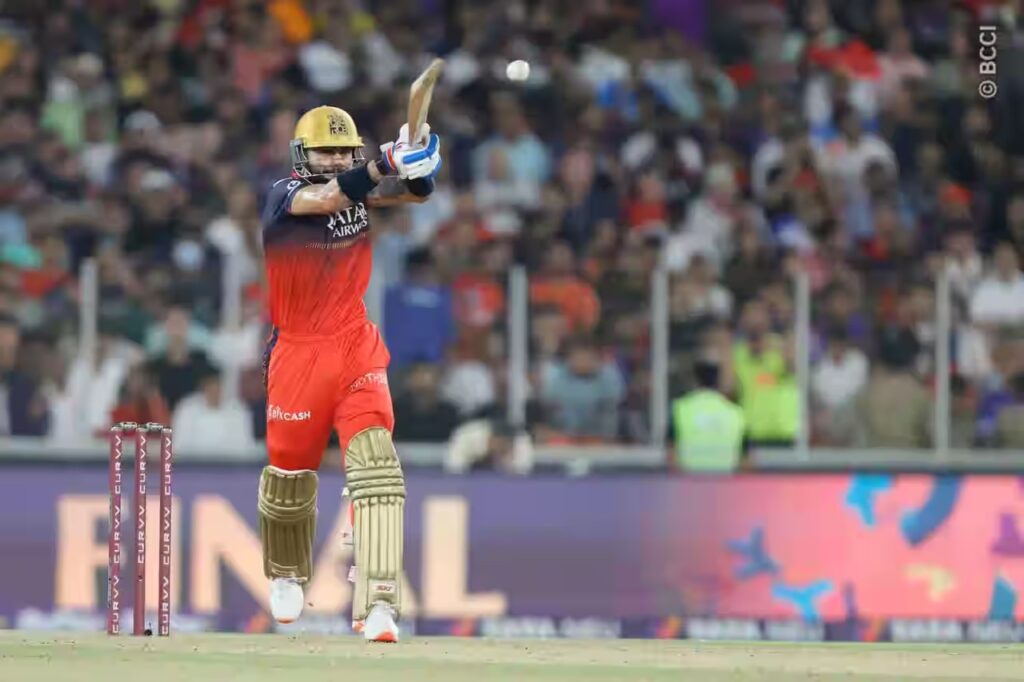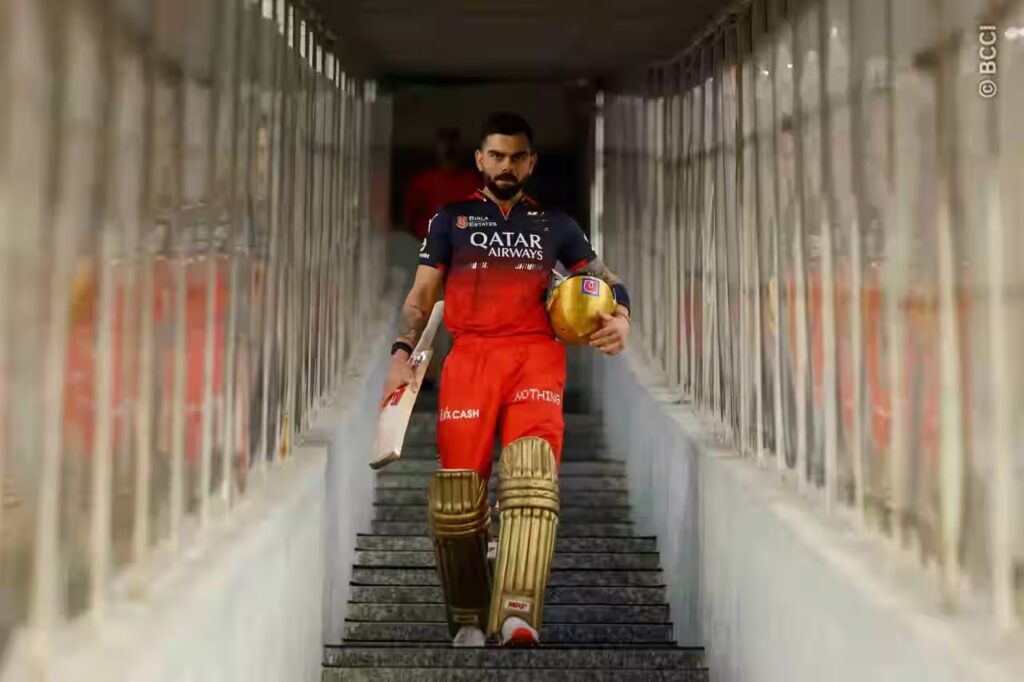
With a reduced slate of boundaries and over-the-boundaries in the Powerplay and Phil Salt departing early, the attention turned to Virat Kohli. Salt and Kohli formed a formidable opening partnership for Royal Challengers Bengaluru in this IPL with more than 1,000 runs between them. The hard numbers say Kohli made a bigger contribution with 657 runs compared to his partner’s 403. But they also confirm Salt’s role as an enforcer with a strike rate of 175.98 vis-à-vis Kohli’s 144.71.
In the final, Salt perished in the second over, thanks to a fine catch from Punjab Kings captain Shreyas Iyer. The stage was set for Kohli to cut loose. He stuck to his role of anchor instead. With RCB batting deep — Romario Shepherd and Krunal Pandya at No. 7 and 8 respectively — was it the right approach?
Pitch No. 6, a mixed-soil surface, at Narendra Modi Stadium wasn’t quite a belter. It had a tennis-ball bounce to start with. The slower bouncers were sticking in the deck. It was a pitch where the bowlers were happy taking pace off the ball. Also, the PBKS bowlers, especially Kyle Jamieson, showed good discipline. Someone needed to take the bull by the horns, and Kohli wasn’t the man for the job.

RCB sauntered to 55/1 after six overs, with their ex-captain batting on 13 off 10 balls. After 10 overs, they had reached 87/2 – Kohli batting on 27 off 21 deliveries. It felt like an ODI knock and offered a throwback to the 2023 World Cup final, when, at the same venue, his slow burn, along with KL Rahul’s, had taken the momentum away from India’s batting.
Coming back to this game, belatedly, Kohli tried to force the pace. A slog-sweep off Yuzvendra Chahal for a four oozed intent. In his smart seats at Motera, Rishi Sunak, the former British Prime Minister who is an RCB and Kohli fan, looked happy. But the happiness was short-lived. A slower bouncer from Azmatullah Omarzai ended Kohli’s innings on 43 off 35 balls. He failed to make up for the slow start.
All said and done, 190 could still be a match-winning total (about 10-15 runs below-par on the face of it) in a final, and RCB have the bowling wherewithal to defend it. They got there riding on Jitesh Sharma’s 10-ball 24 and Liam Livingstone’s 25 off 15 balls. Jitesh, especially, showed how proactive batting could upset the line and length of the bowlers. His approach was in sync with modern T20 cricket. Kohli’s style, on the other hand, looked passé.



